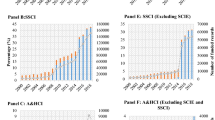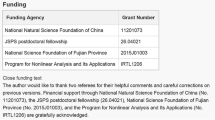Abstract
The study of acknowledgments as a source of data on research funding is gaining ground in science, as exemplified by the present inclusion of this information in bibliographic databases such as Web of Science (WoS). The objective of this paper is to explore the completeness and accuracy of WoS in extracting and processing funding acknowledgment data. With this purpose, a random sample of articles published in eight thematic areas and selected from the scientific output of Spain in 2014 are analyzed. Funding information that appears in original articles is recorded by WoS in the “funding text” field, but is also extracted to the “funding agency” and “grant number” subfields. In the extraction process, some funding information was lost in 12% of the articles and the distribution of agencies and grant numbers by subfield was not always consistent. In addition, funding support is often incompletely reported by authors: in about half of the articles we studied, the country of origin of the funder or the grant number(s) were not mentioned. We propose and discuss the need to develop more detailed guidelines on how to acknowledge funding. More accurate documentation of funding sources in published articles would benefit researchers, funders and journals, and enhance the reliability and usefulness of studies on funding acknowledgments.










Similar content being viewed by others
Notes
Funding information is captured if it is mentioned in the acknowledgment section of the article and if the funding body is included in the FundRef ontology: http://www.crossref.org/fundref/.
Information provided by Thomson Reuters (now Clarivate Analytics) Technical Support Unit (October 2015).
The detailed classification scheme is available in Bordons et al. (2016).
Articles and reviews, hereafter referred to as “articles”.
There is some overlap between categories because grants that were entirely and partially lost may coexist in a given article.
ANR stands for L'Agence Nationale de la Recherche in France; MIUR stands for the Ministero dell'Istruzione, dell'Università e della Ricerca in Italy; MICINN stands for the Ministerio de Ciencia e Innovación in Spain.
References
Álvarez-Bornstein, B., Morillo, F., & Bordons, M. (2016). Accuracy and completeness of funding data in the Web of Science. In 21st international conference on science and technology indicators. Valencia, Spain: European Network of Indicator Designers (ENID) and INGENIO.
Bordons, M., Morillo, F., Gómez, I., Moreno-Solano, L., Lorenzo, P., Aparicio, J., et al. (2016). La actividad científica del CSIC a través de indicadores bibliométricos (Web of Science, 2011–2015). Madrid: IFS, UTAI, CCHS, CSIC.
Boyack, K. W., & Jordan, P. (2011). Metrics associated with NIH funding: a high-level view. Journal of the American Medical Informatics Association, 11(18), 423–431. doi:10.1136/amiajnl-2011-000213423.
COST Association. (2015). Guidelines for the dissemination of COST Action results and outcomes. Belgium.
Costas, R., & Leeuwen, T. N. (2012). Approaching the “reward triangle”: General analysis of the presence of funding acknowledgments and “peer interactive communication” in scientific publications. Journal of the American Society for Information Science and Technology, 63(8), 1647–1661. doi:10.1002/asi.22692.
Costas, R., & Yegros-Yegros, A. (2013). Possibilities of funding acknowledgement analysis for the bibliometric study of research funding organizations: Case study of the Austrian Science Fund (FWF). In J. Gorraiz, E. Schiebel, C. Gumpenberger, M. Hörlesberger, & Moed, H. (Eds.), Proceedings of the 14th international society of scientometrics and informetrics conference (pp. 1401–1408). Vienna, Austria: Austrian Institute of Technology.
Cronin, B. (1995). The Scholar’s courtesy: the role of acknowledgments in the primary communication process. Los Angeles: Taylor Graham.
Cronin, B., McKenzie, G., Rubio, L., & Weaver-Wozniak, S. (1993). Accounting for influence: Acknowledgments in contemporary sociology. Journal of the American Society for Information Science, 44(7), 406–412.
Cronin, B., & Shaw, D. (1999). Citation, funding acknowledgement and author nationality relaitonships in four information science journals. Journal of Documentation, 55(4), 402–408.
Cronin, B., & Weaver, S. (1995). The praxis of acknowledgment: from bibliometrics to influmetrics. Revista Española de Documentación Científica, 18(2), 172–177.
Díaz-Faes, A. A., & Bordons, M. (2014). Acknowledgments in scientific publications: Presence in Spanish science and text patterns across disciplines. Journal of the Association for Information Science and Technology, 65(9), 1834–1849. doi:10.1002/asi.23081.
Giles, C. L., & Councill, I. G. (2004). Who gets acknowledged: Measuring scientific contributions through automatic acknowledgment indexing. Proceedings of the National Academy of Sciences of the United States of America, 101(51), 17599–17604.
Grassano, N., Rotolo, D., Hutton, J., Lang, F., & Hopkins, M. (2017). Funding data from publication acknowledgements: coverage, uses and limitations. Journal of the Association for Information Science and Technology, 68(4), 999–1017.
Harter, S. P., & Hooten, P. A. (1992). Information science and scientists: JASIS, 1972–1990. Journal of the American Society for Information Science, 43(9), 583–593.
Henderson, C., Howard, L., & Wilkinson, G. (2003). Acknowledgement of psychiatric research funding. British Journal of Psychiatry, 183, 273–275. doi:10.1192/bjp.183.4.273.
Koier, E., & Horlings, E. (2015). How accurately does output reflect the nature and design of transdisciplinary research programmes? Research Evaluation, 24, 37–50. doi:10.1093/reseval/rvu027.
Lewison, G. (1994). Publications from the European Community biotechnology Action Program (BAP): Multinationality, acknowledgment of support and citations. Scientometrics, 31, 125–142. doi:10.1007/BF02018556.
Lewison, G., & Dawson, G. (1998). The effect of funding on the outputs of biomedical research. Scientometrics, 41(1–2), 17–27. doi:10.1007/BF02457963.
Lyubarova, R., Itagaki, B. K., & Itagaki, M. W. (2009). The impact of National Institutes of Health funding on U.S. cardiovascular disease research. PLoS ONE, 4(7), e6425. doi:10.1371/journal.pone.0006425.
Morillo, F. (2016). Public–private interactions reflected through the funding acknowledgements. Scientometrics, 108(3), 1193–1204. doi:10.1007/s11192-016-2032-0.
Paul-Hus, A., Desrochers, N., & Costas, R. (2016). Characterization, description, and considerations for the use of funding acknowledgment data in Web of Science. Scientometrics, 108, 167–182. doi:10.1007/s11192-016-1953-y.
Research Information Network. (2008). Acknowledgement of funders in scholarly journal articles guidance for UK research funders, Authors and Publishers. Retrieved from www.rin.ac.uk/system/files/attachments/Acknowledgement-funders-guidance.pdf.
Rigby, J. (2011). Systematic grant and funding body acknowledgement data for publications: New dimensions and new controversies for research policy and evaluation. Research Evaluation, 20(5), 365–375. doi:10.3152/095820211X13164389670392.
Rigby, J. (2013). Looking for the impact of peer review: Does count of funding acknowledgements really predict research impact? Scientometrics, 94, 57–73. doi:10.1007/s11192-012-0779-5.
Salager-Meyer, F., Alcaraz-Ariza, M. A., Luzardo-Briceño, M., & Jabbour, G. (2011). Scholarly gratitude in five geographical contexts: A diachronic and cross-generic approach of the acknowledgment paratext in medical discourse (1950–2010). Scientometrics, 86, 763–784. doi:10.1007/s11192-010-0329-y.
Sirtes, D. (2013). Funding acknowledgements for the German Research Foundation (DFG). The dirty data of the Web of Science database and how to clean it up. In J.Gorraiz, E. Schiebel, C. Gumpenberger, M. Hörlesberger, & Moed, H. (Eds.), Proceedings of the 14th international society of scientometrics and informetrics conference (pp. 784–795). Vienna, Austria: Austrian Institute of Technology.
Tang, L., Hu, G., & Liu, W. (2017). Funding acknowledgment analysis: Queries and caveats. Journal of the Association for Information Science and Technology, 68(3), 790–794.
Wang, X., Liu, D., Ding, K., & Wang, X. (2012). Science funding and research output: A study on 10 countries. Scientometrics, 91, 591–599. doi:10.1007/s11192-011-0576-6.
Wang, J., & Shapira, P. (2011). Funding acknowledgement analysis: an enhanced tool to investigate research sponsorship impacts: The case of nanotechnology. Scientometrics, 87, 563–586. doi:10.1007/s11192-011-0362-5.
Zhao, D. (2010). Characteristics and impact of grant-funded research: A case study of the library and information science field. Scientometrics, 84, 293–306. doi:10.1007/s11192-010-0191-y.
Acknowledgements
This research is supported by the Ministerio de Economía y Competitividad (MINECO), Spain (research project CSO2014-57826-P and predoctoral contract BES-2015-073537). We are grateful to Adrián Arias for his contribution in the design of the sample of articles analyzed here, to the ACUTE team for its support in processing data and to K. Shashok for improving the use of English in the manuscript.
Author information
Authors and Affiliations
Corresponding author
Appendix
Rights and permissions
About this article
Cite this article
Álvarez-Bornstein, B., Morillo, F. & Bordons, M. Funding acknowledgments in the Web of Science: completeness and accuracy of collected data. Scientometrics 112, 1793–1812 (2017). https://doi.org/10.1007/s11192-017-2453-4
Received:
Published:
Issue Date:
DOI: https://doi.org/10.1007/s11192-017-2453-4




